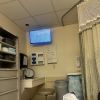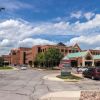- 1-role-of-machine-learning-in-heart-disease
- 2-types-of-machine-learning-models-used
- 3-real-world-applications-and-success-stories
- 4-challenges-in-implementing-ml-for-heart-disease
- 5-future-directions-and-advancements
- 6-how-heartcare-hub-supports-patients
1. Role of Machine Learning in Heart Disease
Machine learning models have become pivotal in advancing the diagnosis and management of heart disease. By analyzing vast datasets from patient records, imaging, and biomarkers, these models identify complex patterns and risk factors that traditional methods might miss. This enables earlier detection and personalized treatment plans that can significantly improve patient outcomes.

2. Types of Machine Learning Models Used
Common machine learning models applied to heart disease prediction include decision trees, support vector machines, neural networks, and ensemble methods like random forests. Each model offers unique strengths: for instance, neural networks excel in interpreting medical imaging, while decision trees provide interpretable rules that clinicians can trust. Integrating multiple models often yields the most accurate predictions.
Atlanta Heart Specialists
atlanta heart specialists
4375 Johns Creek Pkwy #350, Suwanee, GA 30024, USA

3. Real-World Applications and Success Stories
Several hospitals and research centers have successfully implemented machine learning to predict heart attacks, arrhythmias, and other cardiovascular events. For example, a recent study demonstrated how a neural network analyzed ECG data to detect atrial fibrillation with higher accuracy than cardiologists. Stories like these highlight the transformative potential of AI in cardiology.
4. Challenges in Implementing ML for Heart Disease
Despite promising advances, challenges remain in data quality, model interpretability, and integration with clinical workflows. Ethical concerns about patient data privacy and bias in algorithms also require careful attention. Ongoing research is addressing these issues to ensure machine learning tools are safe, fair, and effective.
5. Future Directions and Advancements
The future of heart disease prediction with machine learning looks bright, with emerging techniques like deep learning and explainable AI enhancing both accuracy and clinician trust. Combining genetic data with real-time monitoring through wearable devices could usher in an era of truly personalized cardiology.
6. How HeartCare Hub Supports Patients
At HeartCare Hub, we provide the latest insights on heart disease and machine learning models, along with resources to help patients navigate modern cardiology options. Whether seeking preventive advice or advanced diagnostics, HeartCare Hub connects you with expert services and innovative tools designed to safeguard your heart health.





















Deborah Heart and Lung Center
deborah heart and lung center
200 Trenton Rd, Browns Mills, NJ 08015, USA